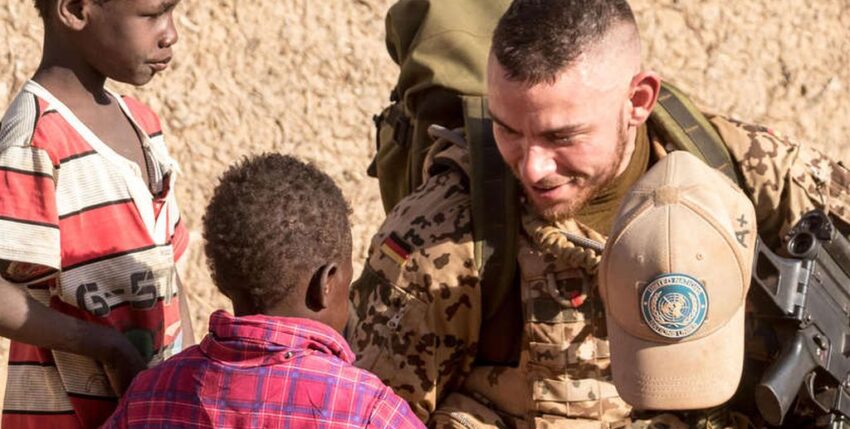Wolfram Lacher recently published an SWP study entitled "Our Difficult Partner - Germany and France's Unsuccessful Engagement in Libya and Mali" (https://www.swp-berlin.org/fileadmin/contents/products/studien/2021S03_deutschland_frankreich_libyen_mali.pdf).
What makes the paper so worth reading from a German perspective is not so much the knowledgeable detailed analysis of German and French Africa policy. Rather, it is the ruthlessness with which the author reveals the differences between the two countries and the fundamental German deficits in operational security policy. It is worth reflecting on this on the basis of Lacher's study.
In recent decades, France has tried to move away from colonial concepts, but has repeatedly fallen back into the mindset of Françafrique. It still dreams of its role as a world power, but can only fulfil it in Africa. It is not afraid to use the classic means of great powers to achieve this: Politics, diplomacy, military, secret services and economics.
In France, policymakers set the strategic goals that are to be achieved using military and other means. It defines the "what" and "how", whereby the study clearly shows that France was not particularly fortunate in either the "what", the political goals, or the "how", the choice of means, with regard to Libya and Mali. In addition, there is often a lack of corrective action from other partners because France tends to go it alone.
In Germany, too, politics determines "what" and "how". However, German security policy follows a completely different pattern. Berlin primarily pursues alliance policy and comparable objectives with military operations. It often has little interest of its own in the regions concerned.
The example of Niger cited in the study is particularly vivid. Germany's involvement there came about because it wanted to do "something in Africa" for its application for a non-permanent seat on the UN Security Council in 2019/20. The country of deployment did not play a role. It was therefore about Germany's position in the UN, not about Niger and not about any strategic effect in the region.
For the same reason, German involvement in Mali was significantly increased in 2015. The study states that, as in the case of Niger, the country of deployment was irrelevant. The strategic interest that the mission supposedly served, namely combating the causes of flight and terrorism, was also fabricated. Instead, the top priority was to get the contingents through safely, i.e. with a low spatial presence and interaction with the population.
The goal was a seat in the UNSCR. The means to achieve this was a military commitment that was large enough to be recognised and thus achieve the intended political effect. The requirement was to minimise the risk for the soldiers. Against this backdrop, Lacher's observation with regard to the French-led missions that "Berlin supports them, but does not help shape them" is understandable. In this respect, Germany is not a corrective for the undesirable developments observed in such missions.
Germany does not think in the same categories as Paris. In this respect, one gets the impression that there is neither the interest nor the ability in Berlin to deal with the details and concrete implications of military involvement at all. The French are happy to leave that to them. The study attests to the widespread belief among German officers and diplomats that French military personnel know what they are doing in the Sahel. However, this opinion is misplaced.
In his conclusions, Lacher does away with many paradigms of German foreign and security policy. He calls for an open discussion about the weaknesses of the French policy approach in Africa. Germany's view of French foreign policy in the region fluctuates between "diffuse mistrust" and instinctive Francophilia, sometimes combined with secret admiration for France's supposed realpolitik. The prerequisite for a realistic assessment of French policy is first of all a more intensive examination of one's own.
And finally, there needs to be a sober look at the deployment of German armed forces in such crisis states. Is it about demonstrating solidarity with allies, consolidating the position in international institutions or achieving results on the ground?
What can be deduced from these questions and findings? One major problem is that Germany does not operationalise its goals either politically or militarily. The motivation to participate in military missions analysed by Lacher can be observed not only in Africa. For example, the long-lasting deployment in Afghanistan primarily serves the German-American relationship and, beyond that, the position in NATO.
The failure to define military objectives has serious consequences for the Bundeswehr. Politicians determine in detail the personnel and equipment with which the Bundeswehr contingents are deployed. Domestically motivated restrictions play a major role here. In addition to a non-militarily derived upper mandate limit, these manifest themselves in catchphrases such as "no ground troops", "no offensive weapons" or simply "no howitzers".
As there are no defined military objectives, the military leadership only has a limited basis for its demands. It finds it difficult to establish a link between objectives and the means required to achieve them in order to counter political demands that do not make military sense.
Against this backdrop, it is not surprising that Germany is struggling with a real evaluation of the mission. The honest question should be "have we achieved politically what we set out to do?" However, if the real objectives differ significantly from the proclaimed ones, the government cannot ask this question publicly. This would be impossible to communicate either to allies or to its own troops, as the examples of Niger and Mali show.
This is a particularly big problem if the political addressees of Germany's endeavours, i.e. the UN, France, the USA or NATO, are satisfied with symbolic contributions of no great military value. The situation is different if only a German contribution that makes a substantial contribution to the declared objective of the mission is accepted.
This deficit is particularly bitter for the soldiers on deployment. They can only set the goal declared in the respective mandate in relation to the opportunities granted to them. If they regularly return to the scene of the action over many years and see that, despite all their personal sacrifices, no progress is being made and there may even be regression, this can be a traumatic experience.
And finally, the big loser is the EU. If its two most powerful states pursue security policy in the way described in the study, it will never become a serious political player outside its economic domain.
Lacher's commendable study offers all those interested - and hopefully many more who should be interested - plenty of food for thought on German security policy, Franco-German relations and the role of the EU as a foreign policy actor.











2 responses
And there are even more critical voices than Lacher's study: https://www.politico.eu/article/in-the-sahel-macron-faces-his-afghanistan/?utm_campaign=Morgenlage%20Außenpolitik&utm_medium=email&utm_source=Revue%20newsletter
The study is more opinion than scientific research. Lacher could have approached those involved in the federal government for a serious assessment. He did not.
The rationale for increasing the engagement in Mali in 2015 was primarily solidarity with France at the time of the EU intervention, Art. 42.7 TEU.
The EU updated its Sahel strategy on 16 May.
The German government has underpinned the cabinet decision on the Mali mandates MINUSMA and EUTM Mali with a strategic concept.